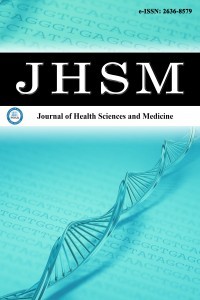1.
Lamb D, Gnanapragasam S, Greenberg N, et al. Psychosocialimpact of the COVID-19 pandemic on 4378 UK healthcareworkers and ancillary staff: initial baseline data from a cohortstudy collected during the first wave of the pandemic. OccupEnviron Med. 2021;78(11):801-808.
2.
Labrague LJ, De Los Santos JAA. COVID-19 anxiety among front-line nurses: Predictive role of organisational support, personalresilience and social support. J Nurs Manag. 2020;28(7):1653-1661.
3.
Lai J, Ma S, Wang Y, et al. Factors associated with mental healthoutcomes among health care workers exposed to coronavirusdisease 2019. JAMA Netw Open. 2020;3(3): e203976.
4.
Luo M, Guo L, Yu M, Jiang W, Wang H. The psychological andmental impact of coronavirus disease 2019 (COVID-19) onmedical staff and general public - a systematic review and meta-analysis. Psychiatry Res. 2020;291:113190.
5.
Earvolino-Ramirez M. Resilience: a concept analysis. Nurs Forum.2007;42(2):73-82.
6.
Turner SB. Resilience of nurses in the face of disaster. DisasterMed Public Health Prep. 2015;9(6):601-604.
7.
Cooper AL, Brown JA, Rees CS, Leslie GD. Nurse resilience: aconcept analysis. Int J Ment Health Nurs. 2020;29(4):553-575.
8.
Haddadi P, Besharat MA. Resilience, vulnerability and mentalhealth. Procedia - Soc Behav Sci. 2010;5:639-642.
9.
Shin YC, Kim SM, Kim H, et al. Resilience as a protective factorfor depressive mood and anxiety among Korean employees. JKorean Med Sci. 2019;34(27):e188.
10.
Fradelos EC, Alikari V, Vus V, et al. Assessment of the relationbetween religiosity, anxiety, depression and psychologicalresilience in nursing staff. Health Psychol Res. 2020;8(1):8234.
11.
Ançel G. Karşılıklı bağımlılık kavramı hemşirelikle ilişkisi vekarşılıklı bağımlılığı belirleme araçları. Turk J Res Develop Nurs.2012;14(1):70-78.
12.
Öz F. Bağlaşıklık ve hemşirelik. Codependency and nursing. KrizDerg. 1998;6(1):67-73.
13.
Biering P. "Codependency". A disease or the root of nursingexcellence? J Holist Nurs. 1998;16(3):320-337.
14.
Martsolf DS, Hughes-Hammer C, Estok P, Zeller RA.Codependency in male and female helping professionals. ArchPsychiatr Nurs. 1999;13(2):97-103.
15.
Beck AT, Epstein N, Brown G, Steer RA. An inventory formeasuring clinical anxiety: psychometric properties. J ConsultClin Psychol. 1988;56(6):893-897.
16.
Ulusoy M, Sahin, NH, Erkmen H. Turkish version of the Beckanxiety inventory: psychometric properties. J Cogn Psychother.1998;12(2):163-172.
17.
Fischer J L, Spann L, Crawford DW. Measuring codependency.Alcohol Treat Q. 1991;8(1):87-100.
18.
Tanhan F, Mukba G. “Spann-Fischer ilişki bağımlılığı ölçeği’ninTürkçe’ye uyarlama çalışmasına ilişkin psikometrik bir analiz”.Pamukkale Üniv Eğ Fak Der. 2014;36:179-190.
19.
Smith BW, Dalen J, Wiggins K, Tooley E, Christopher P, Bernard J.The brief resilience scale: assessing the ability to bounce back. Int JBehav Med. 2008;15(3):194-200.
20.
Doğan T. Kısa psikolojik sağlamlık ölçeği’nin Türkçe uyarlaması:geçerlik ve güvenirlik çalışması. J Happiness Well-Being. 2015;3(1):93-102.
21.
Korkmaz SA, Yıldız A, Erdas MB, Karakaya O, Goka E. Mentalhealth status of healthcare workers during the COVID-19pandemic in Turkey: results from the vaccination phase. PBS.2022;12(4):164-175.
22.
Luthar SS, Cicchetti D. The construct of resilience: implicationsfor interventions and social policies. Dev Psychopathol.2000;12(4):857-885.
23.
Barzilay R, Moore TM, Greenberg DM, et al. Resilience, COVID-19-related stress, anxiety and depression during the pandemicin a large population enriched for healthcare providers. TranslPsychiatry. 2020;10(1):291.
24.
Setiawati Y, Wahyuhadi J, Joestandari F, Maramis MM, Atika A.Anxiety and resilience of healthcare workers during COVID-19pandemic in Indonesia. J Multidiscip Health. 2021;14:1-8.
25.
Karabulak H, Kaya F. The relationship between psychologicalresilience and stress perception in nurses in Turkey during theCOVID-19 pandemic. J Nurs Res. 2021;29(6):e175.
26.
Bayat D, Polat Olca S. Covid 19 pandemisinin hemşirelerinpsikolojik sağlamlık anksiyete ve depresyon düzeylerine etkisi.Sağlık Akademisyenleri Derg. 2023;10(1):146-154.
27.
Cullen J, Carr A. Codependency: an empirical study from asystemic perspective. Contemp Fam Ther. 1999;21(4):505-526.
28.
Yates JG, McDaniel JL. Are you losing yourself in codependency?.Am J Nurs. 1994;94(4):32-36.
29.
Caffrey RA, Caffrey PA. Nursing: caring or codependent? NursForum. 1994;29(1):12-17.
30.
Knapek E, Balázs K, Ildikó KS.Resilience and early maladaptiveschemas among codependent, borderline, and healthy individuals.Alkalmazott Pszıchológıa. 2015;15(1):111-127.
31.
Faraji H, Utar K, Berfu Boran N. Relationship between earlymaladaptive schemas and psychological resilience. Asia Stud AcadSoc Stud. 2022; 6(19):203-214.
32.
Jazayeri M, Vatan khah HR, badiei MM. The relationship betweendefense styles and early maladaptive schemas with resilience inboy students of high school in Tehran city. Thoughts Behav ClinPsychol. 2014;8(30):7-16.
33.
Lin J, Ren Y, Gan H, Chen Y, Huang Y, You X. Factors influencingresilience of medical workers from other provinces to Wuhanfighting against 2019 novel coronavirus pneumonia. BMCPsychiatry. 2020;417:1-15.
34.
Huffman EM, Athanasiadis DI, Anton NE, et al. How resilient isyour team? Exploring healthcare providers' well-being during theCOVID-19 pandemic. Am J Surg. 2021;221(2):277-284.
35.
Saruç S, Kızıltaş A. An analysis of the healthcare personnel’sanxiety levels during the COVID-19 pandemic in terms of theirpsychological resilience and the problems they experienced. JPsychiatric Nurs. 2021;12(4):314-323.

